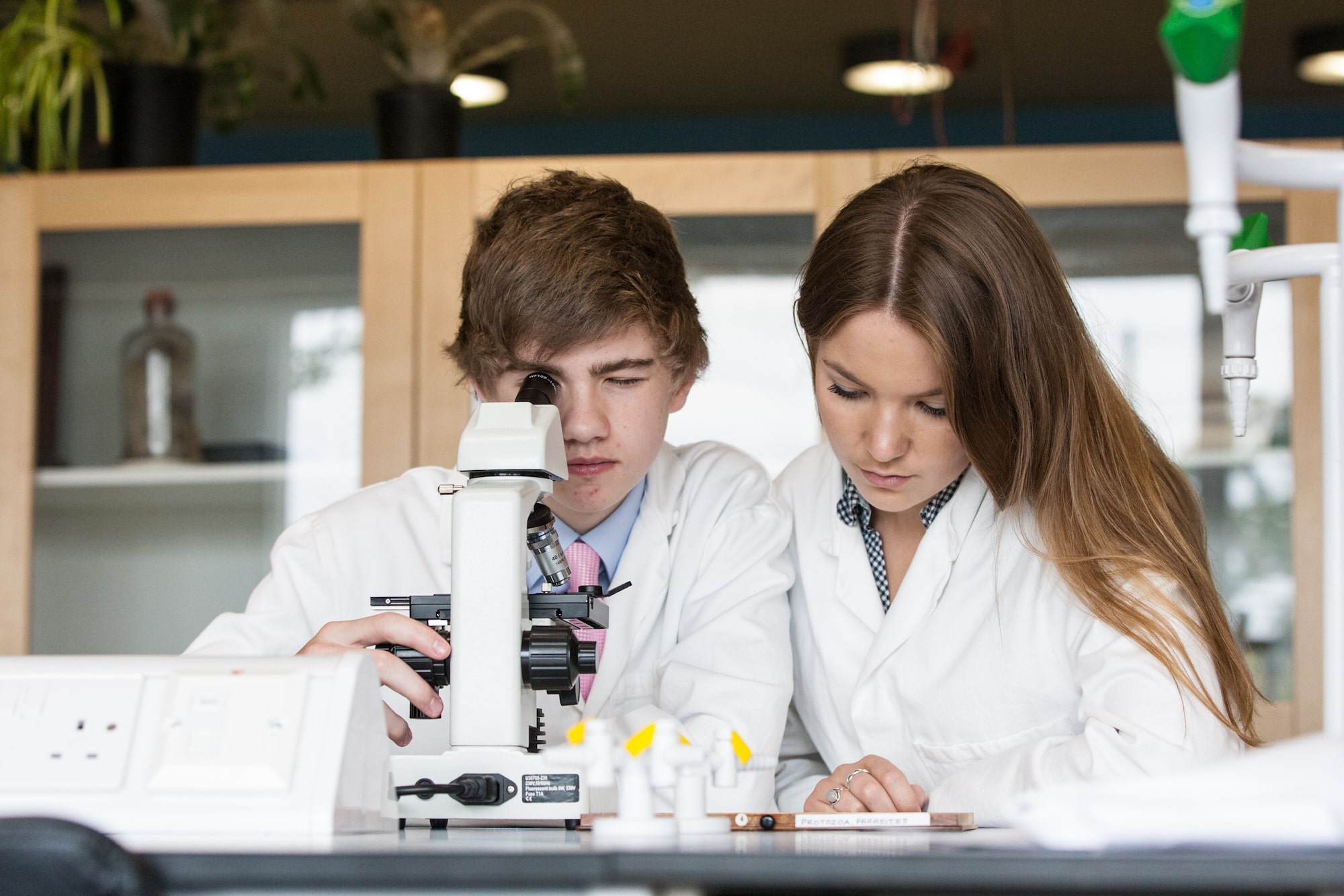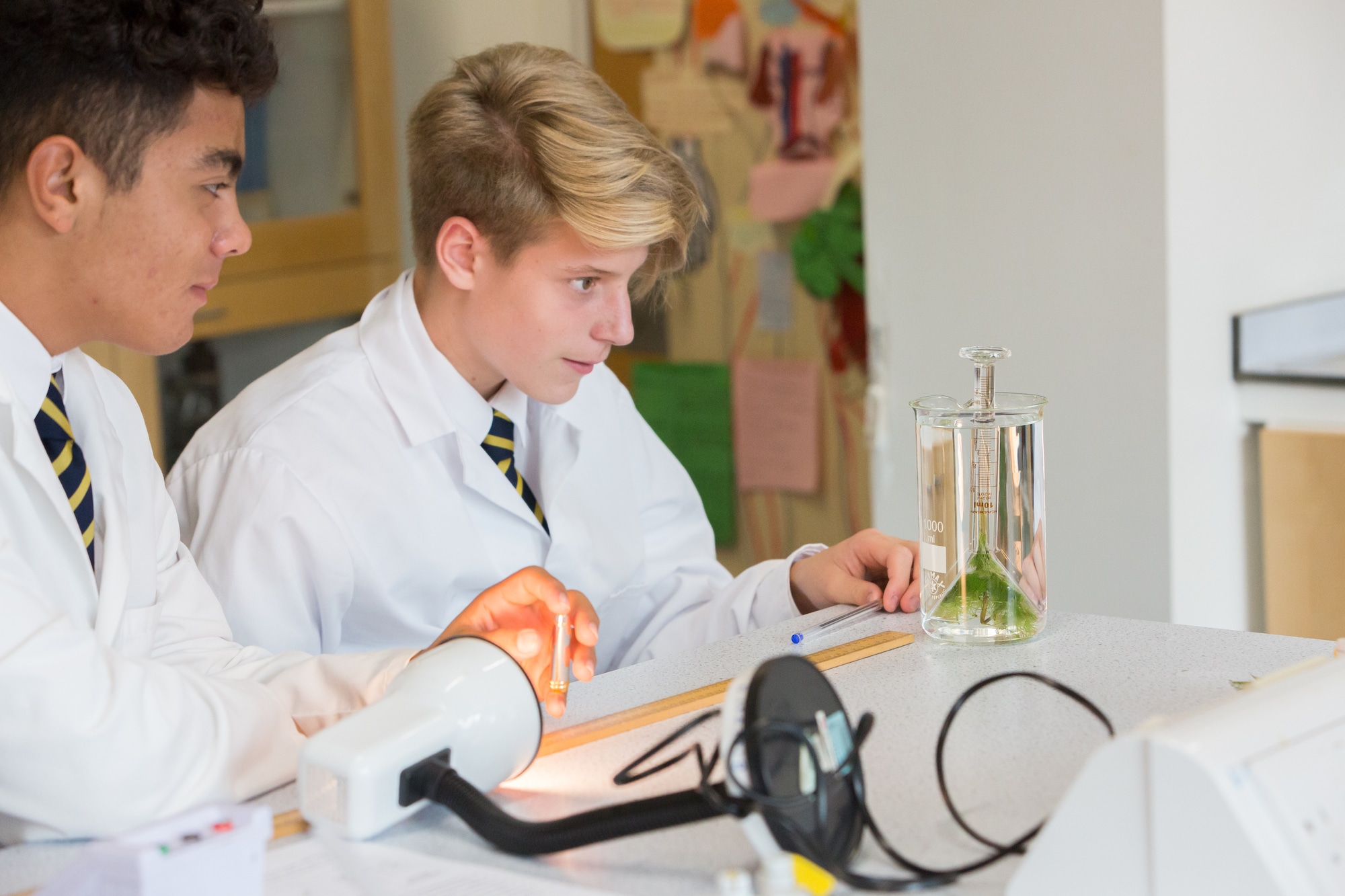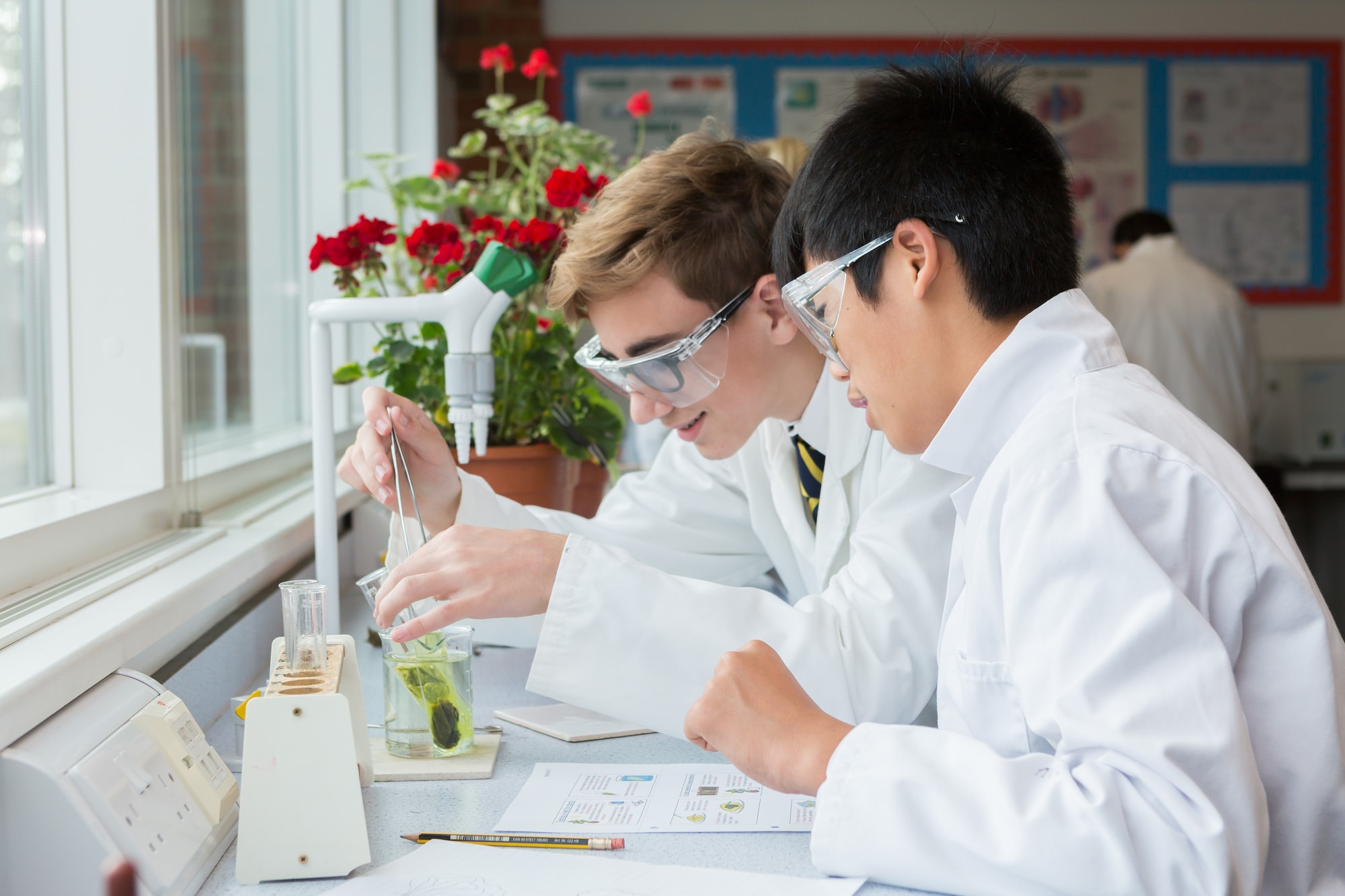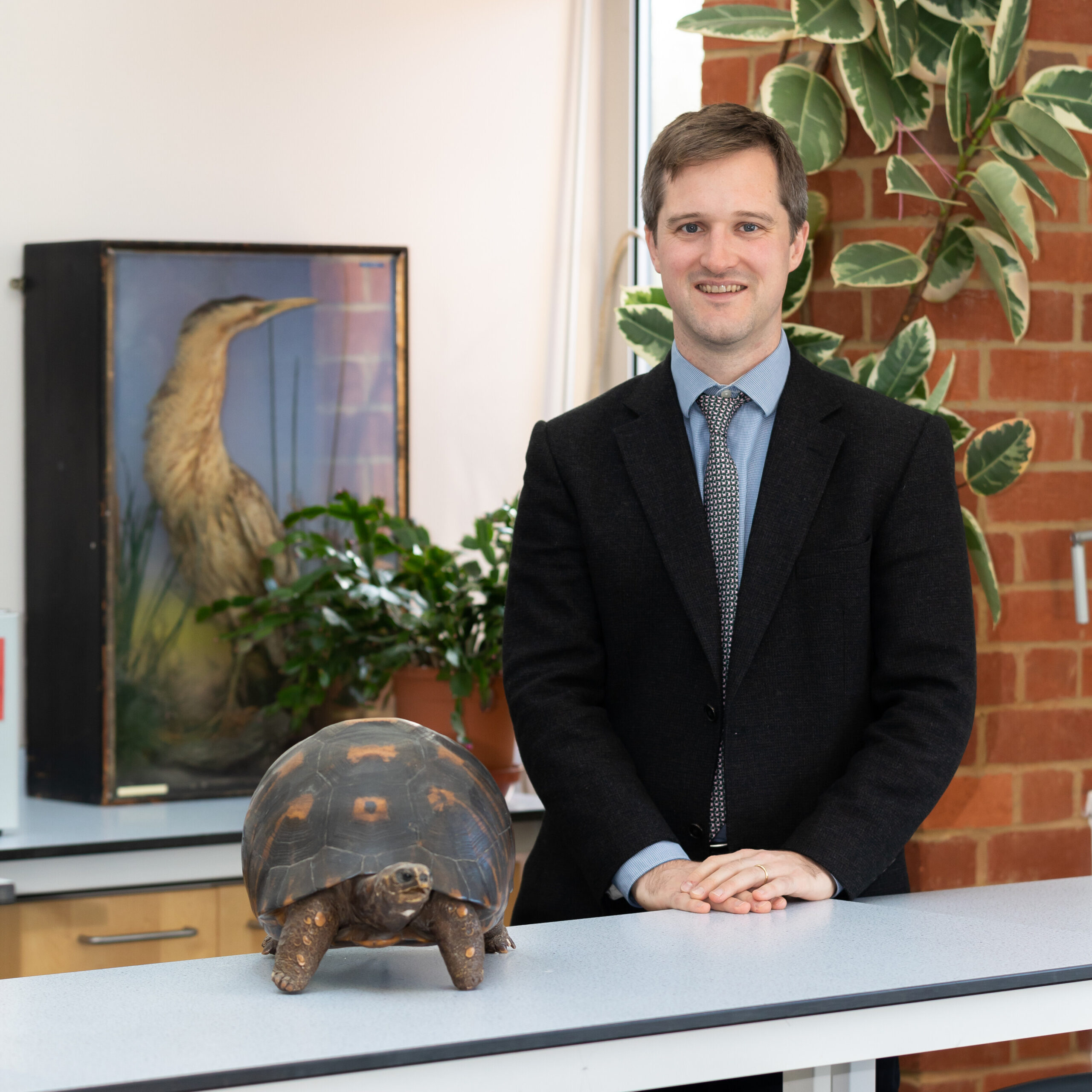Residing in the fantastically well-equipped Emms building, the enthusiastic Biology staff seek to encourage an interest in this fundamental, exciting and ever-changing science.
Biology is the study of past, present and future life on Earth. Whether through pandemics, antibiotic resistance, the climate emergency or global food shortages, recent events have shown just how important it is for young people to have both an understanding of Biology and the ability to critically evaluate what they read in the news. It is indisputable that Biology affects all of us, and through exploring the relationships between cells, organisms and their environments, students gain a sense of perspective and appreciation for the world in which we live. The material is wide-ranging, with contemporary references to biotechnological advances making it highly relevant to our lives today
Lower School
Upper School
Trips and Events
In the Summer of Lower Sixth, there is a residential field trip to Dorset, in which students complete a set of required ecology practical activities in a series of locations along the Jurassic Coast.
In the Upper Sixth, a particular highlight is the “Brains for Biologists” day, in which a visiting expert delivers a series of interactive lectures covering all aspects of neuroscience, from the most traditional anatomy and physiology to cutting-edge research. The day culminates in a sheep brain dissection.
Depending on dates, in recent years there have been a number of trips to “Science: Live” and “Science in Action” events in London and, for the first time in a number of years, the department is leading an overseas trip to study the native flora and fauna of the Florida Everglades (Easter 2024).
Biology students enter the Biology Challenge (Years 9 and 10), the Intermediate Biology Olympiad (Lower Sixth) and the British Biology Olympiad (Upper Sixth).
Beyond School
An A Level in Biology leads to a number of related Undergraduate programmes. In recent years, for example, A Level Biologists have gone on to study Biological Sciences, Biochemistry, Biomedical Engineering, Biomedical Science, Chemistry, Environmental Geoscience, Human Biosciences, Marine Biology, Medicine, Microbiology, Natural Sciences, Neuroscience, Pharmacology, Physiological Science and Psychology.
An A Level in Biology also facilitates access to a range of unrelated degree options. Recent A Level Biologists have pursued undergraduate degree programmes in, for example, Advertising, Business, Economics, English, Drama, Geography, History and Politics, Marine Geography, Marketing, Maths and Sports Science, Politics and International Studies, Sociology and Sport and Exercise Science.
Head of Biology
William Statham
Head of Biology












